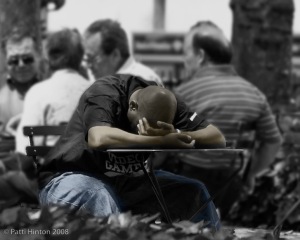One big reason I set out to try to spend time on this message (with a book proposal and a blog) is to show that God is usually different than we make him out to be. This comes out in the Bible. He’s full of surprises. He sews leather outfits for the couple who betrayed him. He gives clemency to the first murderer. Jacob the devious trickster is father to a great nation. “Jacob have I loved, Easu have I hated.” In a better translation of the Hebrew, God says: “I am favoring Jacob, but not Easu.” God points this out much in a twist of the plot, and our normal assumptions, much to our surprise. It’s all to show his wild grace, which none of us deserve. The running narrative in the Bible isn’t much of a “how to do right living” book. The characters featured are usually full of flaws. It is rather a collection of stories where God’s power and grace shines through and saves the day.
This is a God we can love and trust. It is often a God we weren’t taught about too much in church or Sunday school. Perhaps Jesus was taught to us this way-a lamb draped on his shoulders, and such. But, God is often taught as something of a splintered off honcho, a petulant Being who has had a habit of smiting people.
The idea of understanding God’s character anew, through informed context, is that it leads us to understand the Reality of “him,” and the omnipresence of this Being, God Almighty, always in the regular moments of life. Every moment may be a chance for greater awareness and communion with the lover of our nefesh (soul-whole being). It doesn’t boil down to a set of rules or rituals. It is a relationship, a prayer between us and the Supreme Other. Our life becomes prayer.



 When I was in under my parent’s care, I was hit with a spatula among other things, in what my parents called discipline with “the rod”. This was picked over “time outs,” or being grounded, and my back side broke many a spanking implement–wooden rulers and cooking spoons, frosting spatulas, pancake spatulas, and probably other stuff I’ve blocked out psychologically. (I won’t even go into the things that didn’t or couldn’t brake on my backside!)
When I was in under my parent’s care, I was hit with a spatula among other things, in what my parents called discipline with “the rod”. This was picked over “time outs,” or being grounded, and my back side broke many a spanking implement–wooden rulers and cooking spoons, frosting spatulas, pancake spatulas, and probably other stuff I’ve blocked out psychologically. (I won’t even go into the things that didn’t or couldn’t brake on my backside!)